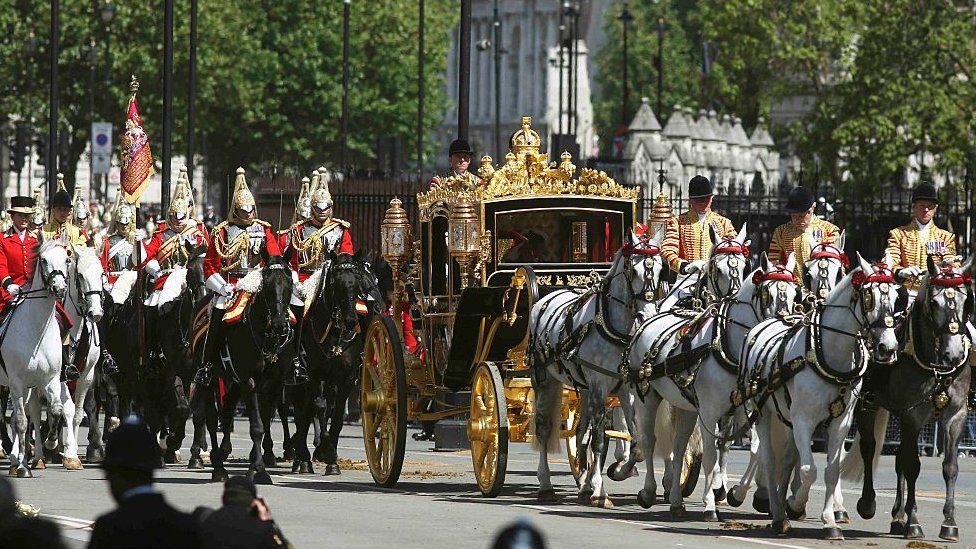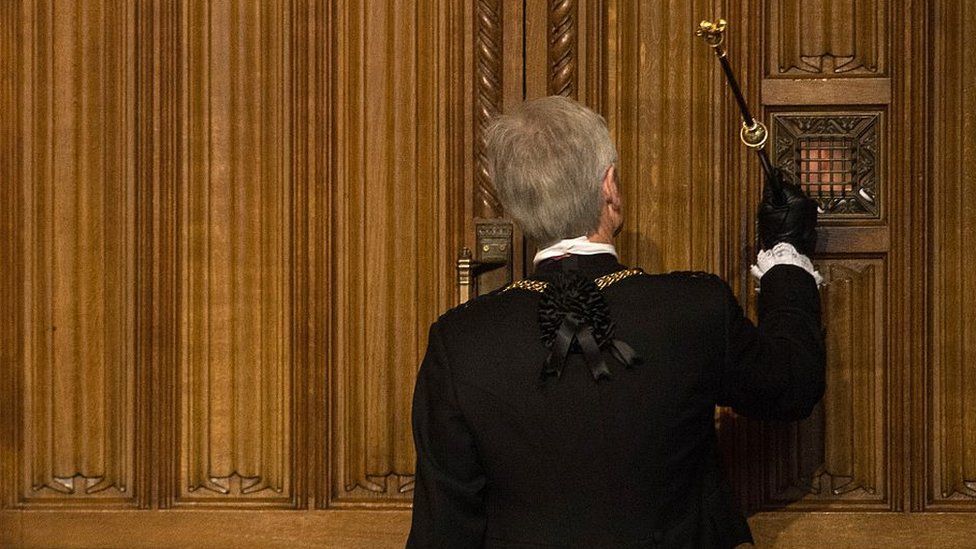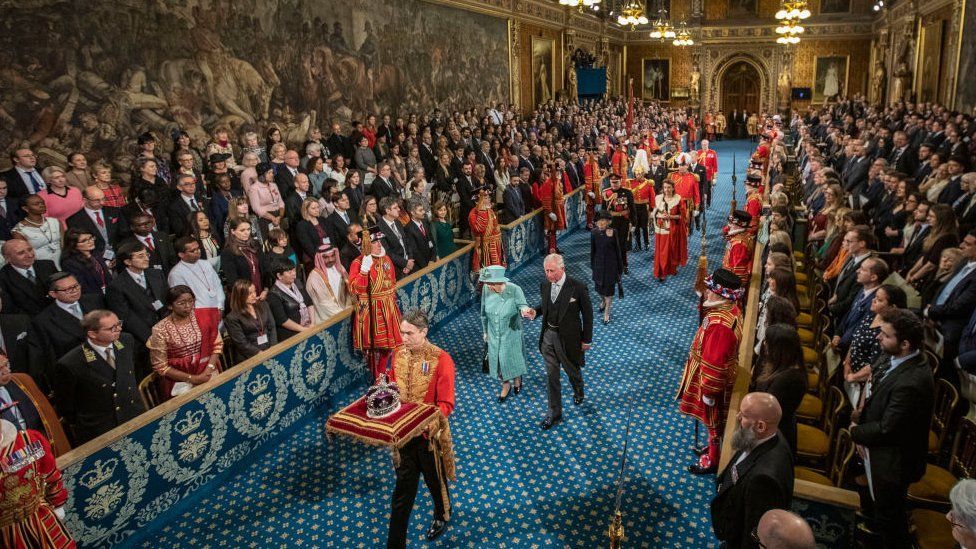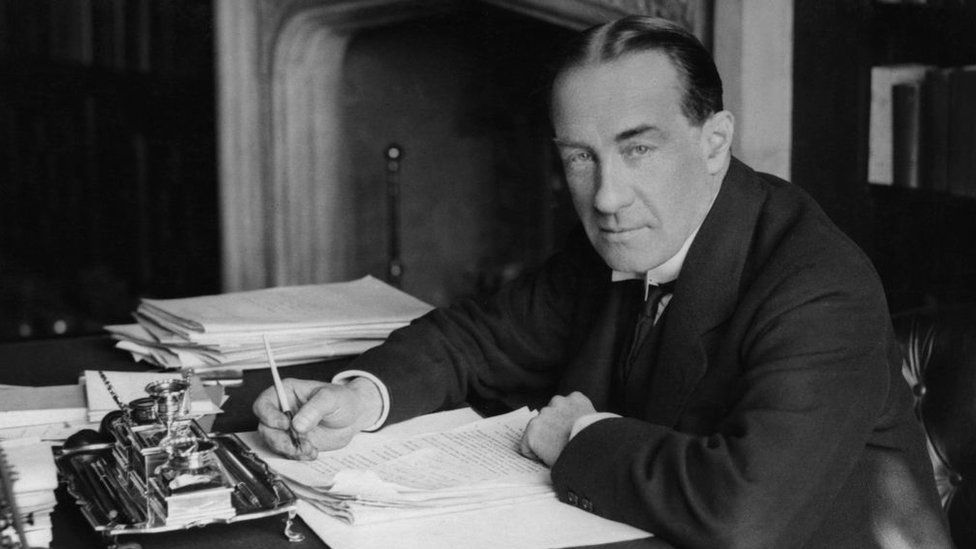
Queen's Speech: What is it and why is it important?
What is the Queen's Speech?
The Queen's Speech provides the government with an opportunity to highlight its priorities for the months ahead.
It forms part of the State Opening of Parliament ceremony, which marks the start of the parliamentary year.
Normally, the ceremony begins with a procession, in which the Queen travels from Buckingham Palace to Westminster - usually by carriage.
However, in light of the pandemic:
* the Queen will arrive in a Bentley limousine
* fewer people will attend and they will need a negative Covid test and face covering
* ceremonial elements will be reduced - no military band or guard of honour to greet the Queen, for example

Before the speech, MPs are summoned to the House of Lords by an official known as Black Rod. Before entering the Commons, Black Rod has the doors shut in their face, symbolising the chamber's independence from the monarchy.
During the speech - read from the throne of the House of Lords - the Queen sets out the laws the government wants Parliament to approve.
It is usually given in the presence of MPs, peers and other dignitaries in the House of Lords. However, only 74 people - including the Queen - will be allowed in the chamber on this occasion, because of Covid restrictions.
When is the Queen's Speech usually held?
Normally, a Queen's Speech happens once a year - usually in spring or after a general election.
The last one, on 19 December 2019, enabled Boris Johnson to set out his agenda, one week after winning the general election.

What will be in the Queen's Speech?
The 2019 Queen's Speech set out more than 30 pieces of proposed legislation, known as bills.
There was a heavy focus on Brexit, as the UK was preparing to leave the EU in a few weeks' time.
Now Brexit is less of an issue, the government is expecting to announce a much broader programme.
This could include:
* speeding up the planning process and helping councils meet new house building targets
* setting out plans for a post-Brexit asylum system
* reiterating the government's longstanding pledge to reform how adult social care in England is funded
Some legislation started or drafted in the last session but not completed in time is also likely to be carried over, including
* giving the power back to prime ministers to call an early general election
* the Environmental Bill - which aims to improve air quality and tackle plastic pollution
Has the Queen's Speech been controversial?
Mr Johnson wanted to hold a Queen's Speech after becoming prime minister in July 2019.
But his initial attempt was blocked by the Supreme Court over the length of time Parliament was to be closed - known as prorogation - before it was held. Critics said Mr Johnson was trying to stop MPs scrutinising his Brexit plans and the suspension was far longer than necessary to hold a Queen's Speech.
Despite the controversy, Mr Johnson did eventually hold a Queen's Speech on 14 October.
Who writes the Queen's Speech?
It is written by ministers but delivered by the Queen.
Its length depends on the number of proposed laws and other announcements - such as foreign policy objectives - but it normally takes about 10 minutes.

Is there a vote on it?
Yes.
About two hours after the speech is delivered, MPs reassemble in the House of Commons to begin debating its contents.
After introductory speeches by two MPs, the prime minister will "sell" the speech to the Commons, setting out their vision for the country.
The leader of the opposition then gets their chance to respond, before other MPs are allowed to contribute.

The debate on what is known as the "Humble Address" normally lasts about five days.
At the end of the debate there is a vote. It's normally seen as symbolic, as it is extremely rare for a government to lose it.
In fact, the last time a government lost the vote was in January 1924, under Conservative Prime Minister Stanley Baldwin. Mr Baldwin proceeded with a King's Speech - George V was the monarch at the time - despite having lost his majority in the previous month's general election.










